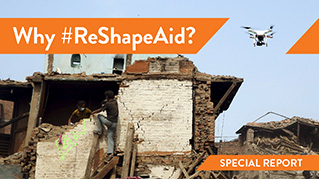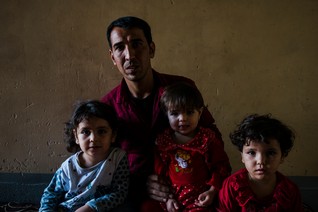In the parched village of Denganmal, in western India, there are no taps. The only drinking water comes from two wells at the foot of a nearby rocky hill, a spot so crowded that the sweltering walk and wait can take hours.
For many men in the hamlet some 140 km from Mumbai, the solution was a “water wife”.
In Denganmal, some men take a second or third wife just to make sure their households have enough drinking water. Becoming what are known as “water wives” allows the women, often widows or single mothers, to regain respect in conservative rural India by carrying water from the well quite some distance from the remote village. When the water wife, who does not usually share the marital bed, becomes too old to continue such a demanding daily task, the husband sometimes takes a third and younger spouse to fetch the water in metal pitchers or makeshift containers.

























